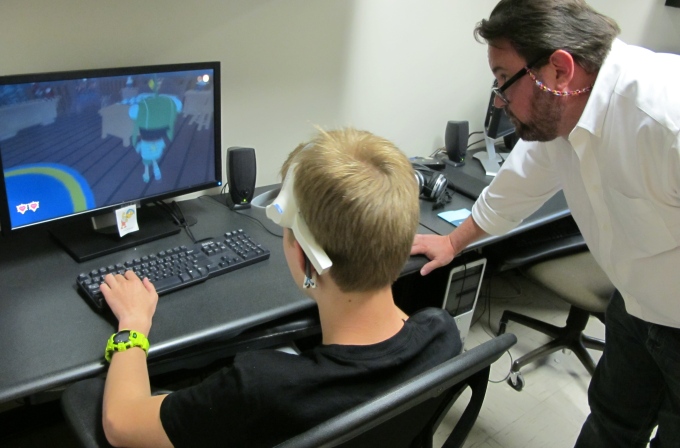Mind over matter
September 18, 2014
Share
Tom Hollenstein (Psychology) is running a two-year trial to see if the video game MindLight can help youth cope with and eventually conquer their anxiety.
The Playnice Institute develops video games such as MindLight with the goal of promoting emotional resilience in youth. Left unchecked, anxiety in youth is shown to lead to higher rates of substance abuse, school absenteeism, depression and suicide.
“The game gives kids a chance to practice regulating their emotions at their own pace and in a safe space using a popular tool, a video game. The idea is that through the game, they will learn how to deal with anxiety-provoking situations,” says Dr. Hollenstein, who is using a grant from the Ontario Mental Health Foundation to conduct the research.
MindLight is designed for children aged eight to 16 years old. Players enter a scary mansion and learn their grandmother was abducted by the shadows. They must travel the dark hallways, solve puzzles and avoid frightening monsters to find their grandmother.

To beat the darkness, players wear Teru the Magical Hat who teaches the player how to use their “mind light” mounted on that magical hat. Players wear a neurofeedback headset called MindWave that measures the player’s level of relaxation or anxiety and that information is incorporated into key features of game play.
“If the trial results are positive, it could lead the way to an entirely new way of treating anxious children and help researchers better understand the power of video games,” Dr. Hollenstein says.
The trial, conducted with the support of Dr. Hollenstein’s co-investigators Sarosh Khalid-Khan (Psychiatry) and Isabel Granic (Psychology), includes two elements. The first takes place through the Mood and Anxiety Treatment Program at Hotel Dieu. For the second part, Dr. Hollenstein’s research team is partnering with local schools to identify at-risk youth and work with them to determine if the game play can help reduce children’s anxiety.